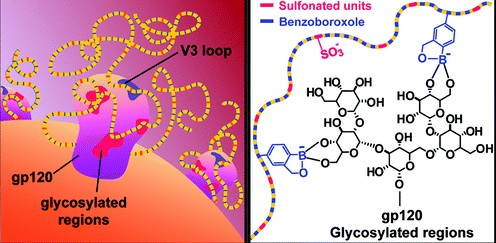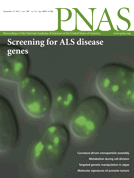Nature:病毒可操控人类免疫系统从而影响免疫效应
2012-08-07 T.Shen 生物谷
刊登在近日的国际杂志Nature上的一篇研究报告中,来自Trinity生物医学研究所的研究者揭示,病毒可以操控人类的免疫系统从而影响免疫效应。 这项研究测试了30种病毒对于人类细胞的防御网络的效应,并且揭示了病毒如何寻找避免免疫系统的方法,最终削减免疫效应。研究发现为研究者开发出特异的抗病毒疗法以及新型药物提供了思路。 研究者收集了70种已知的调节免疫系统的病毒基因,并且系统性地将这些基因插入
刊登在近日的国际杂志Nature上的一篇研究报告中,来自Trinity生物医学研究所的研究者揭示,病毒可以操控人类的免疫系统从而影响免疫效应。
这项研究测试了30种病毒对于人类细胞的防御网络的效应,并且揭示了病毒如何寻找避免免疫系统的方法,最终削减免疫效应。研究发现为研究者开发出特异的抗病毒疗法以及新型药物提供了思路。
研究者收集了70种已知的调节免疫系统的病毒基因,并且系统性地将这些基因插入到人类细胞中,这些基因将会产生30种不同的病毒,包括痘病毒类、疱疹病毒、流感病毒和丙肝病毒。然后研究者使用质谱分析法来分析插入基因所产生的病毒蛋白所作用的人类蛋白质,运用生物信息学技术完全分析病毒蛋白和人类蛋白的相互作用。最终研究者确证了一些新的病毒-人类相互反应。
文章中的研究数据解释了病毒可以以大范围的细胞过程为靶点,而且有些细胞过程具有抗病毒的作用,这在以前并没有报道过。既然研究者发现了病毒攻击细胞常见的和特殊的靶位,那么后期研究工作中,研究者将设计出抗病毒疗法来针对特殊的病毒以及广谱病毒。
编译自:New ways viruses affect human immune response discovered

doi:10.1038/nature11289
PMC:
PMID:
Viral immune modulators perturb the human molecular network by common and unique strategies
Andreas Pichlmair, Kumaran Kandasamy, Gualtiero Alvisi, Orla Mulhern, Roberto Sacco, Matthias Habjan, Marco Binder, Adrijana Stefanovic, Carol-Ann Eberle, Adriana Goncalves, Tilmann Bürckstümmer, André C. Müller, Astrid Fauster, Cathleen Holze, Kristina Lindsten, Stephen Goodbourn, Georg Kochs, Friedemann Weber, Ralf Bartenschlager, Andrew G. Bowie, Keiryn L. Bennett, Jacques Colinge & Giulio Superti-Furga
Viruses must enter host cells to replicate, assemble and propagate. Because of the restricted size of their genomes, viruses have had to evolve efficient ways of exploiting host cell processes to promote their own life cycles and also to escape host immune defence mechanisms1, 2. Many viral open reading frames (viORFs) with immune-modulating functions essential for productive viral growth have been identified across a range of viral classes3, 4. However, there has been no comprehensive study to identify the host factors with which these viORFs interact for a global perspective of viral perturbation strategies5, 6, 7, 8, 9, 10, 11. Here we show that different viral perturbation patterns of the host molecular defence network can be deduced from a mass-spectrometry-based host-factor survey in a defined human cellular system by using 70 innate immune-modulating viORFs from 30 viral species. The 579 host proteins targeted by the viORFs mapped to an unexpectedly large number of signalling pathways and cellular processes, suggesting yet unknown mechanisms of antiviral immunity. We further experimentally verified the targets heterogeneous nuclear ribonucleoprotein U, phosphatidylinositol-3-OH kinase, the WNK (with-no-lysine) kinase family and USP19 (ubiquitin-specific peptidase 19) as vulnerable nodes in the host cellular defence system. Evaluation of the impact of viral immune modulators on the host molecular network revealed perturbation strategies used by individual viruses and by viral classes. Our data are also valuable for the design of broad and specific antiviral therapies.
本网站所有内容来源注明为“梅斯医学”或“MedSci原创”的文字、图片和音视频资料,版权均属于梅斯医学所有。非经授权,任何媒体、网站或个人不得转载,授权转载时须注明来源为“梅斯医学”。其它来源的文章系转载文章,或“梅斯号”自媒体发布的文章,仅系出于传递更多信息之目的,本站仅负责审核内容合规,其内容不代表本站立场,本站不负责内容的准确性和版权。如果存在侵权、或不希望被转载的媒体或个人可与我们联系,我们将立即进行删除处理。
在此留言












#Nat#
67